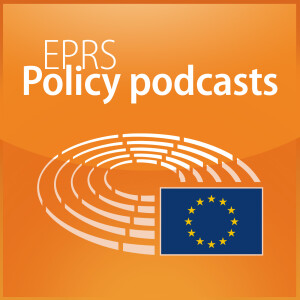
European Parliament - EPRS Policy podcasts
Business:Non-Profit

Future Shocks 2022: Strengthening our energy security
 2022-09-09
2022-09-09
Download
Right click and do "save link as"
Defined by the International Energy Agency as 'reliable, affordable access to all fuels and energy sources', energy security is vital to the EU's economy. However, lacking sufficient energy reserves of its own, the EU is critically dependent on imports. In 2020, these covered well over half (57 %) of the EU's energy needs – a figure which rises to 97 % for oil and 84 % for natural gas. Heavy reliance on imports creates vulnerabilities. Russia's invasion of Ukraine in February 2022 disrupted gas supplies to Europe. The war prompted Germany to suspend certification of the Nord Stream 2 pipeline, and obliged the EU to find ways to drastically reduce their reliance on energy imports from Russia. The European Commission has proposed a reduction of two-thirds in EU energy imports from Russia by the end of 2022. Reflecting these risks, the European Parliament/Normandy Region's Normandy Index identifies energy insecurity as Europe's main external vulnerability.
#FutureShocks2022
REPowerEU: Ensuring Europe's energy security?
Developing EU's energy independence
Fitfor55: a new energy system
- Original publication on the EP Think Tank website
- Subscription to our RSS feed in case your have your own RSS reader
- Podcast available on Deezer, iTunes, TuneIn, Stitcher, YouTube
Source: © European Union - EP
view more
#FutureShocks2022
REPowerEU: Ensuring Europe's energy security?
Developing EU's energy independence
Fitfor55: a new energy system
- Original publication on the EP Think Tank website
- Subscription to our RSS feed in case your have your own RSS reader
- Podcast available on Deezer, iTunes, TuneIn, Stitcher, YouTube
Source: © European Union - EP
More Episodes
Environmental protection
 2018-11-09
2018-11-09
 2018-11-09
2018-11-09
New EU rules on labelling of tyres
 2018-09-07
2018-09-07
 2018-09-07
2018-09-07
New civil aviation safety rules
 2018-04-13
2018-04-13
 2018-04-13
2018-04-13
A new directive on work-life balance
 2018-03-09
2018-03-09
 2018-03-09
2018-03-09
Understanding artificial intelligence
 2018-01-12
2018-01-12
 2018-01-12
2018-01-12
012345678910111213141516171819
Create your
podcast in
minutes
- Full-featured podcast site
- Unlimited storage and bandwidth
- Comprehensive podcast stats
- Distribute to Apple Podcasts, Spotify, and more
- Make money with your podcast
It is Free
- Privacy Policy
- Cookie Policy
- Terms of Use
- Consent Preferences
- Copyright © 2015-2024 Podbean.com




